With the Muslim religion crossing so many different cultures, countries, and ethnicities, Muslim wedding traditions vary greatly depending on the family traditions of the bride and groom. Before being a part of a Muslim wedding, whether you’re attending as a guest, working as a wedding vendor, or participating as a family member, take a moment to understand the timeline and the nuances of the wedding.
Many Muslim weddings in America mix in elements of traditional western weddings like first looks, first dances, and other traditions; while some Muslim families choose to only hold the traditional ceremonies and adhere to the time-honored practices of their home country.
Here are a few things you might see at a Muslim Wedding:
Nikah (or Nikaah) – The Nikah is defined as marriage; marriage contract; matrimony, or wedlock. It is an Islamic Marriage Ceremony. So if, for example, you see this on a wedding timeline, think of this as the actual wedding ceremony. The Nikah is when the physical marriage contract is signed, and it usually includes and involves the bride and groom, their parents or designated witnesses, and an officiant. During the ceremony, the officiant, often an Imam or other community leader, typically delivers a valuable message and recites parts of the Quran.
Mahr (Otherwise known as Meher) – The Mahr is similar to a Dowry, except that it is a required gift given by the groom directly to the bride during a Muslim Wedding. While the Mahr is often money, many families choose to use other items or symbols such as a ring, other precious jewelry, or property. The Mahr is often specified in the actual marriage contract signed during during the Nikah.
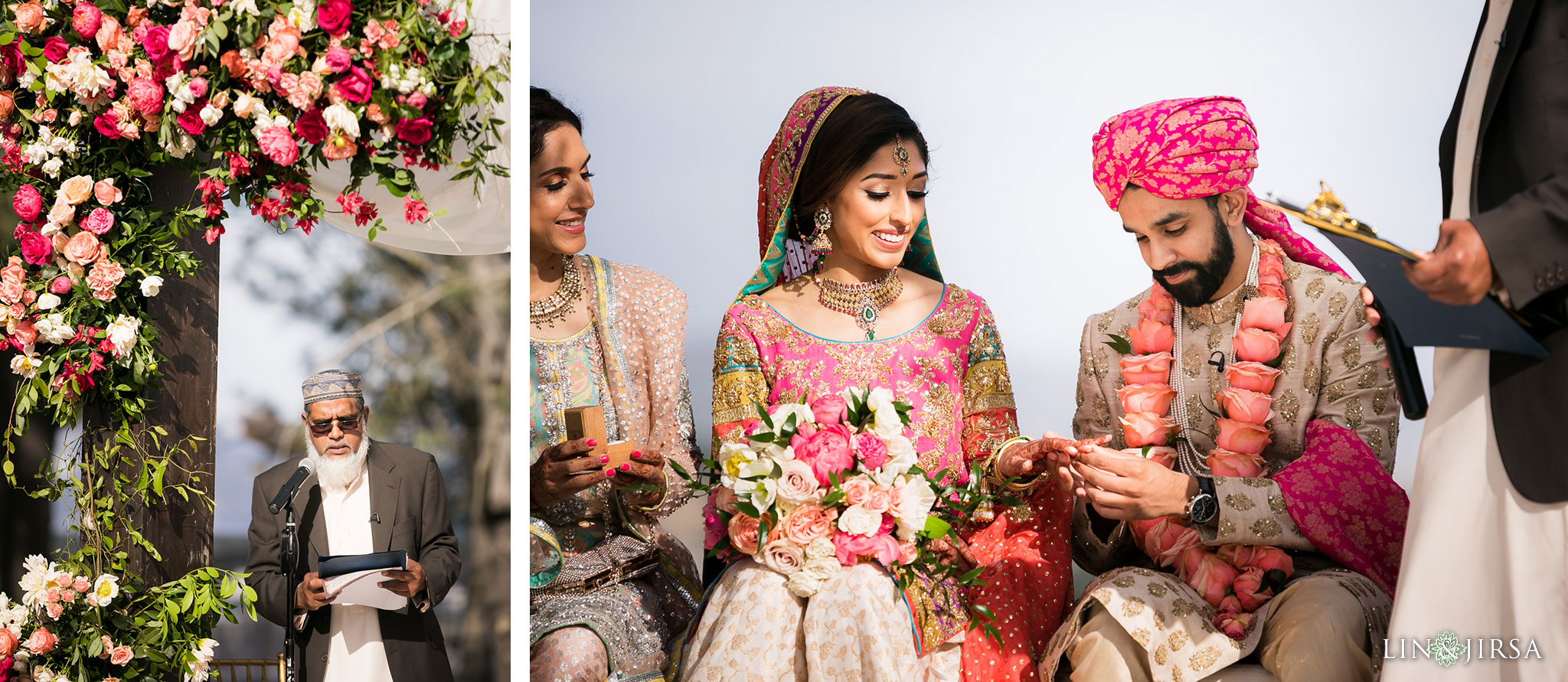
Muslim/Islamic Ceremony Locations
Muslim wedding ceremonies are often held at regular/common wedding venues such as hotels. However, they can also be held at local Mosques. If you are attending a wedding at a Mosque (or Masjid), find out and follow any of the rules they may have such as adhering to a dress code, separate seating/sections for men and women, and more.
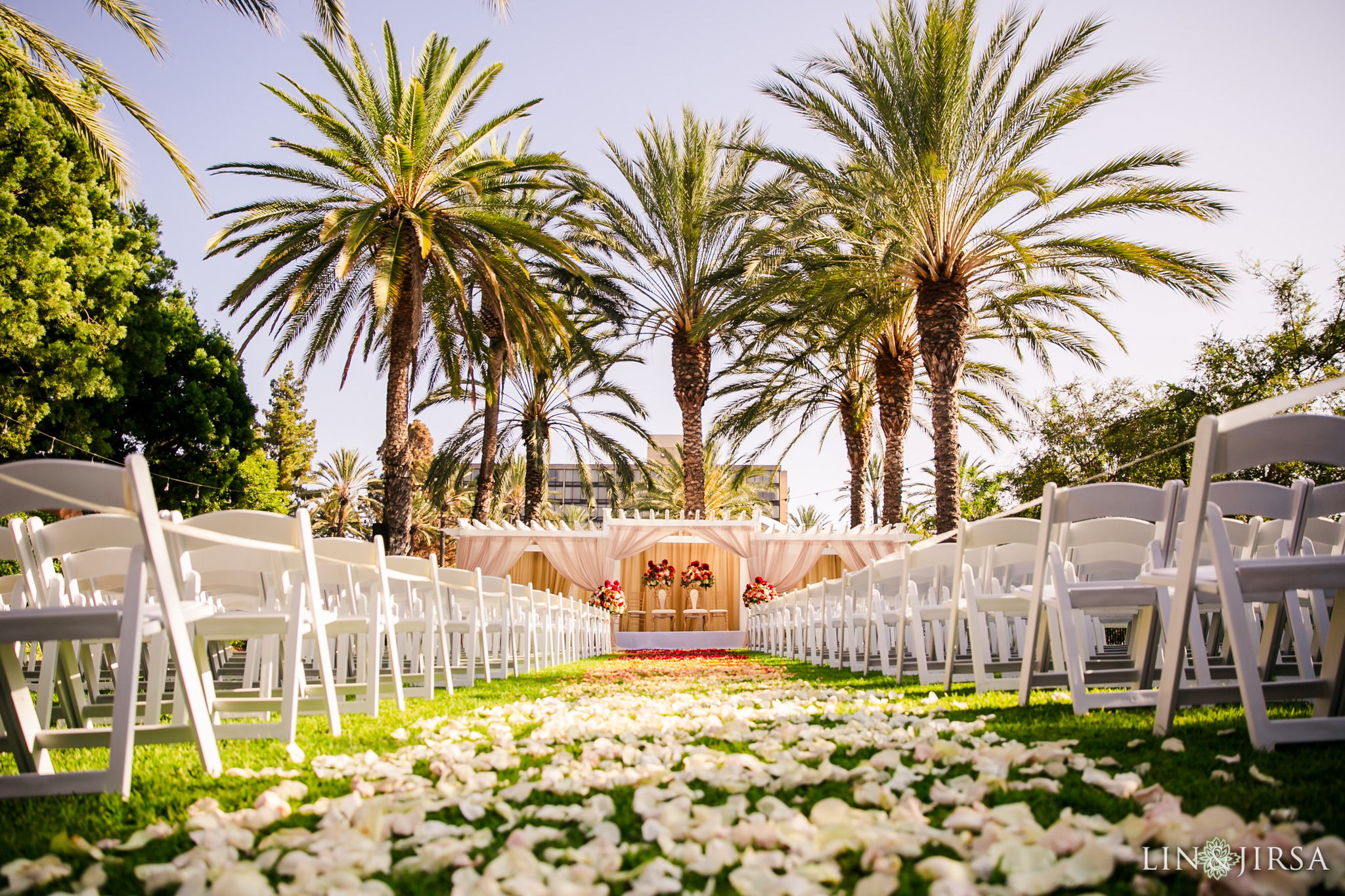
Valimas (Walimas) or Muslim Wedding Receptions
Muslim wedding receptions, in America often include many familiar wedding reception traditions like the cake cutting, first dance, speeches, parent dances, and more. Most Muslim wedding receptions will be “dry,” meaning that no alcohol is served at the cocktail hour or the reception.
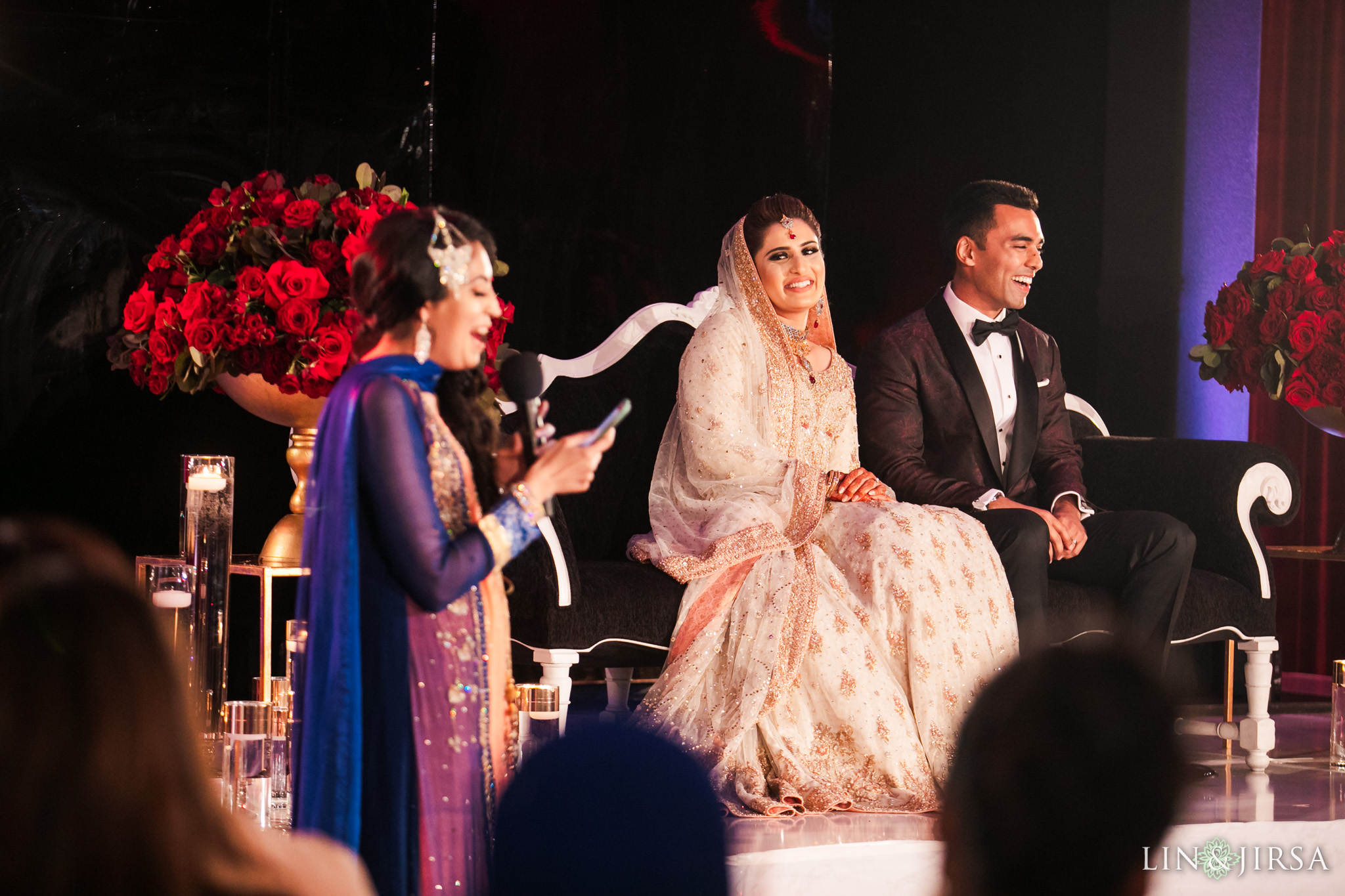
Muslim Wedding Dresses and Attire
The attire at a Muslim wedding will vary greatly depending on the traditions and country of origin of the bride and groom’s families. At times, you’ll see traditional white western dresses, as you see below:
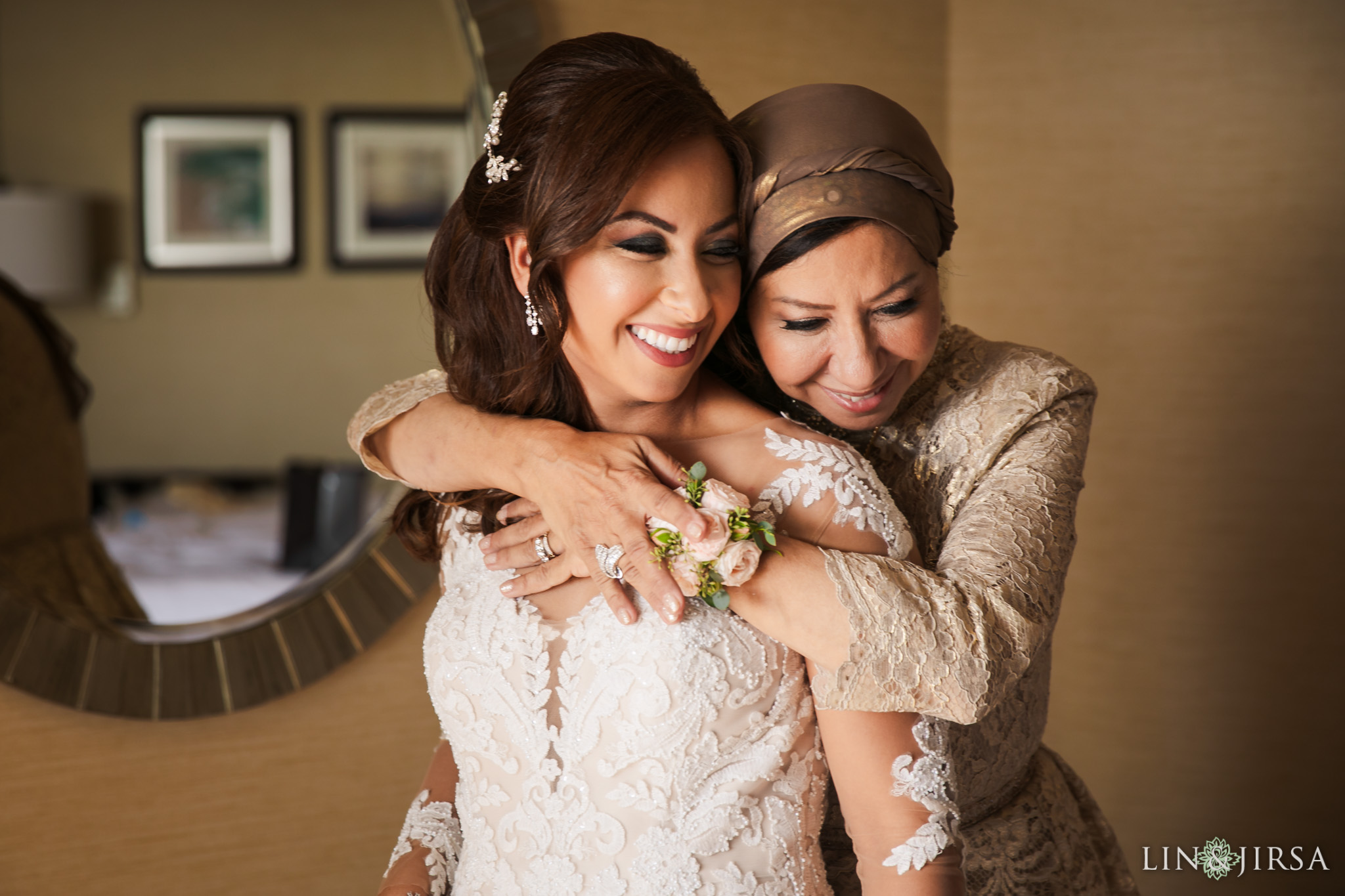
You might also see Pakistani Lehengas or Ghararas, as you can see below:
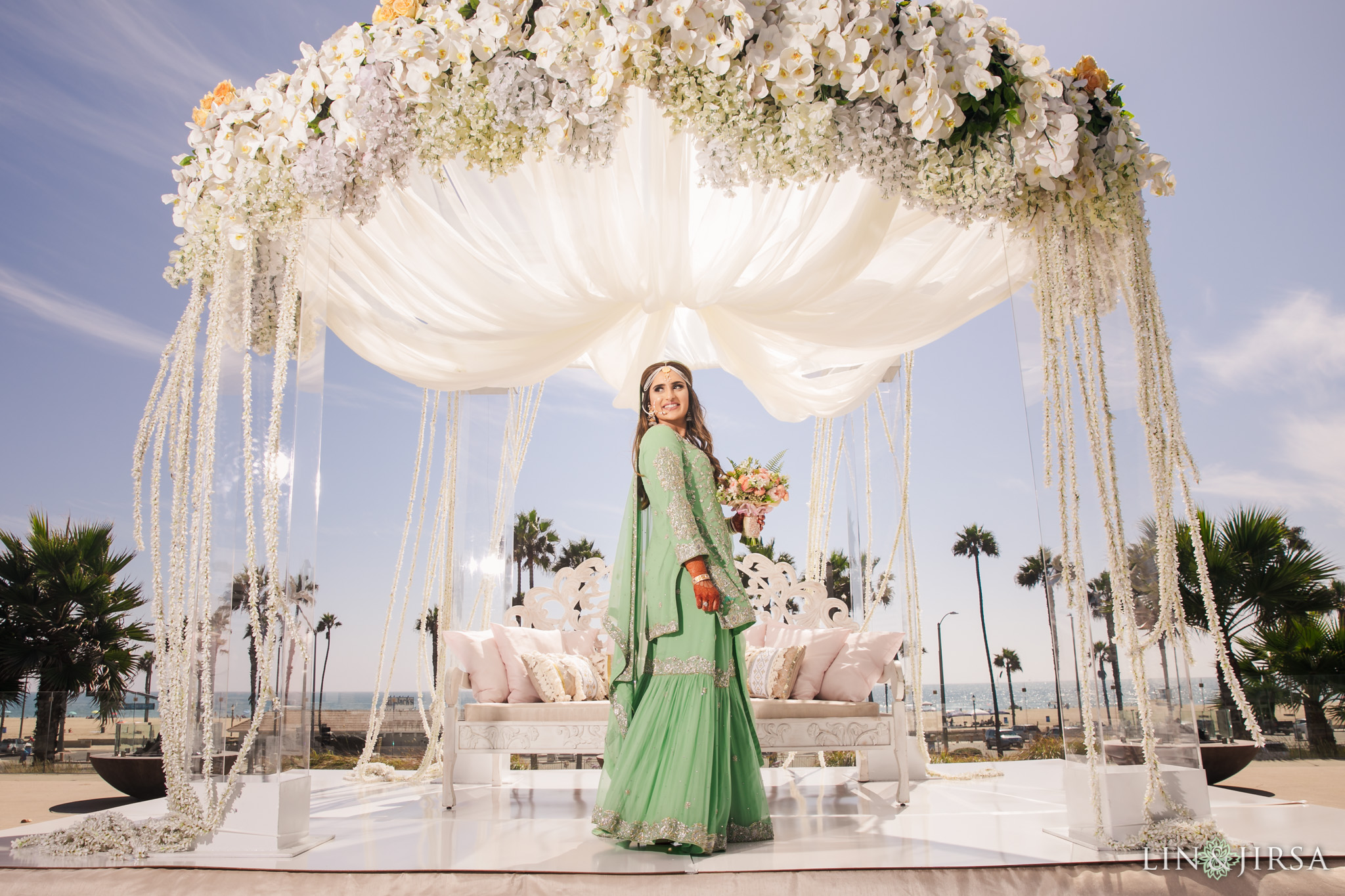
Tips for Attending a Muslim Wedding
Dress Conservatively – Whether the wedding is at a Mosque or a hotel, the Muslim wedding ceremony is a religious, traditional ritual. Generally, try to keep your arms and legs covered. During the ceremony (particularly in the Masjid/Mosque), women may be asked to cover their heads as well. When in doubt, check with the bride and groom, their family, or the wedding coordinator for advice.
Remember – No Alcohol – Muslim wedding receptions are filled with joy, emotion, and dancing. However, remember that they will most likely not serve alcohol. Whether or not this is in line with your beliefs, it’s important to respect the culture and the families.
